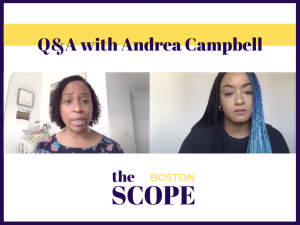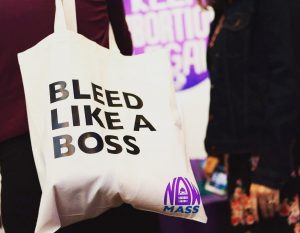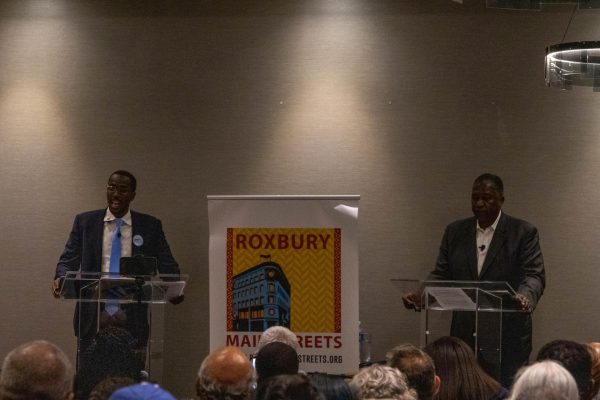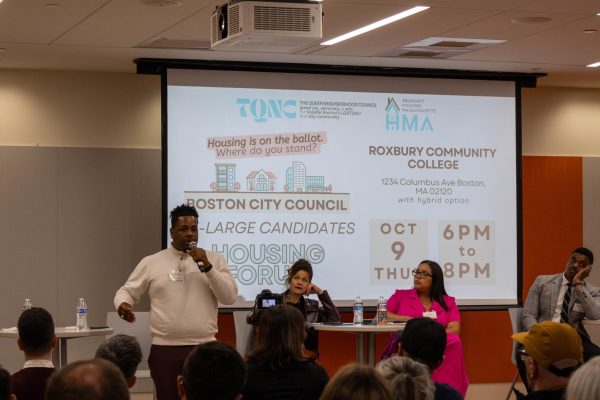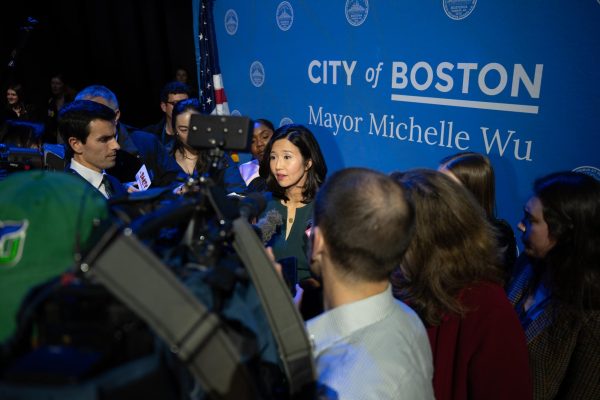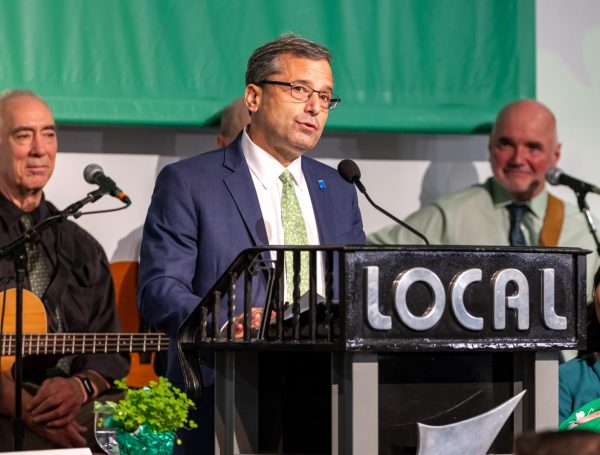City council race: Jacob Urena running for District 4
At 23 years old, the Rev. Jacob Urena would be one of Boston’s youngest city councilors to date. On Oct. 19, Urena began campaigning for the District 4 seat, currently held by Andrea Campbell, as Campbell announced her run for mayor in the city elections set to take place in November 2021.
Urena’s parents are both from the Dominican Republic and he is a first generation American citizen. Urena is also the co-founder of The Order of St. Martin de Porres, a socio-religious organization that represents “a call to go beyond belief into a life of faithful practice and advocacy,” and he intends to gain priesthood within the next year. A Boston native, Urena said he fights for social justice for all members of his community by organizing protests that demand progressive legislative change.
“I find no better way of loving than making sure the people in my neighborhood have a good life where they’re able to succeed,” Urena said. He hopes to represent constituents from the neighborhoods of Mattapan, Dorchester, Roslindale and Jamaica Plain.
Urena sat down with the Scope to discuss his campaign strategy, religious and political philosophy and his personal relationship with social justice. What follows is a condensed version of the conversation.
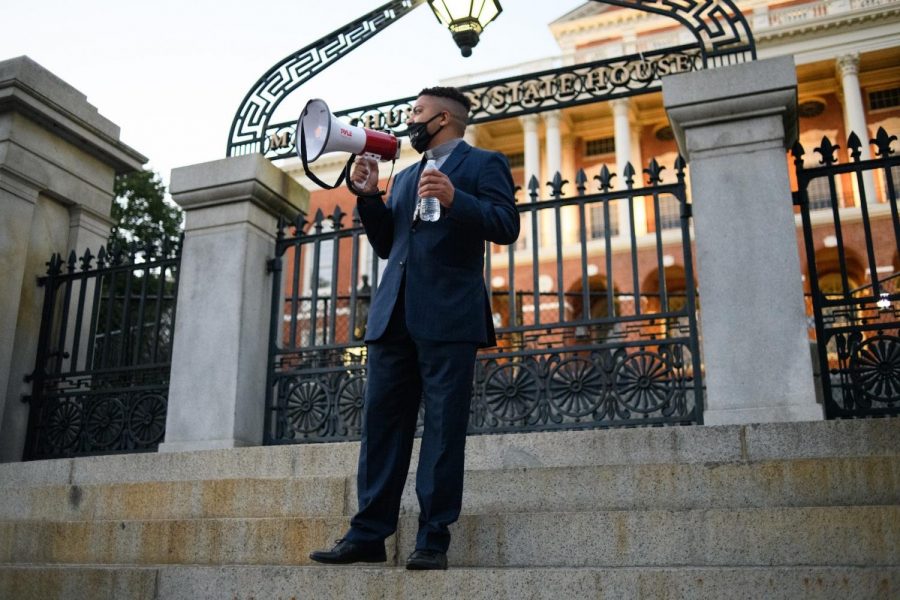
What motivated you to run for public office? What would you hope to accomplish as a council member?
My main motivation for running is just to bring that representation from my family. Being raised by a single parent, my mother, who came to this country not knowing the language, not knowing the customs, not knowing the culture. I was her main point of contact translating. Helping her understand, being her assistance to get public housing at 12, 13 years old.
As we know, Andrea Campbell will be running for mayor, so that seat (District 4) will be vacated. I’m really motivated to fight for the things my mother stood for. We’ve been waiting for years for the city to address that we have nowhere to go. Being a voice for the people in my community and working for the change we actually need … to be their microphone and fight for better healthcare, better housing, more opportunity.
What issues or platforms do you intend to focus on as you campaign?
In my recent meeting with my team addressing some of the issues we’ll focus on, the longest policy session we had was creating public safety and public health. A lot of the things I’ve seen have been superficial Band-aids … I don’t want to hear words saying what we’re gonna do, I wanna see what we’re doing. I really want to see action from the words. A lot of these things are things we’ve been asking for for a long time.
In America, we often talk about a separation of church and state. As someone who is becoming more involved in politics, how do you hope to navigate the different worlds of religion and legislation?
I am very careful in being very mindful of the separation of church and state. We need to understand that Christianity is not the religion of the country. It never has been. If you are serving in political office, you have to put that aside … and keep a separation of your Christian dogmas and the laws governing the land.
What do you anticipate to be your biggest challenge moving forward and how do you plan to address it?
Polls and statistics show that people are actually afraid of state houses and government buildings, but I want to open that up. Not only are you welcome, but you own this building. This building is owned by you. We are serving you. Making sure people feel welcome and have ownership in these spaces is key. Making sure we are following the steps after these protests to actually take action and make change.
I want people to start holding elected officials accountable. My first step in addressing that is to make sure that I have a committee of constituents from each neighborhood. If we were able to have a platform where our constituents feel they’re a part of the policy … where they feel they can work hand in hand with you.
Do you feel that being so young affects your perspective on leadership?
True change comes from the energy of the youth, but not only that, it comes from the wisdom of the elders. I make sure to have people around me who are centered around racial and social justice, and others who are wise and have been through things and know the system, who have lived through it and listen to their advice. Because you’ll need it.
I think it’s time for a newer, fresher voice in the city and a lot of young people are becoming more involved.
You have been involved in recent social justice demonstrations and protests, can you tell me a bit about that?
I’ve had the pleasure of leading two protests here in Boston. The first was Boston Stands for Black Lives sometime in June, and the second was on Sept. 26, which was the We Are the Change Rally and March.
How can these protests have a greater impact on the community?
There are a lot of protests that could do better at addressing action after the protest.
I believe there’s no point in making things separate … we see a lot of protests in different places from different organizations. When we talk about climate change, we’re also talking about racial justice and social justice. We can see how racism is integrated into everything: housing, education, health. We’re more intertwined than we think. If we could just come together and realize that our issues are one and the same and unite as one voice together to demand drastic change, those voices are harder to ignore if they are together and not separated.
Are you involved in any current or upcoming protests?
Currently we have the Boycott on Faneuil Hall. The protests are continually going. The aim of this protest is to get the city council to consider changing the name of this historic Boston landmark.
Having this building that is a pillar of democracy, this is the building where my mother went to get her citizenship, but also this building is named after a slaveholder and slaves were traded there. It’s very hypocritical, and not very centered on change. It’s a real representation of how we put a Band-aid over the problem and don’t actually rip that Band-aid off and address the problem.
In what ways can Boston work to create social and racial justice?
I think number one is addressing the history of the city. One of the main things I’ve seen is how the conversation part can be tough. But that’s vital. The city has some problems. We view ourselves as progressive, and in some ways we are. But when it comes to education and health and housing, we fall a bit behind.
Editor’s note: an earlier version of this story stated that at 23 years old, the Rev. Jacob Urena would be Boston’s youngest city councilor to date. That was incorrect, Ashawn Dabney-Small, who is 18-year-old and running for Boston City Council in District 3, would be the youngest city councilor.




